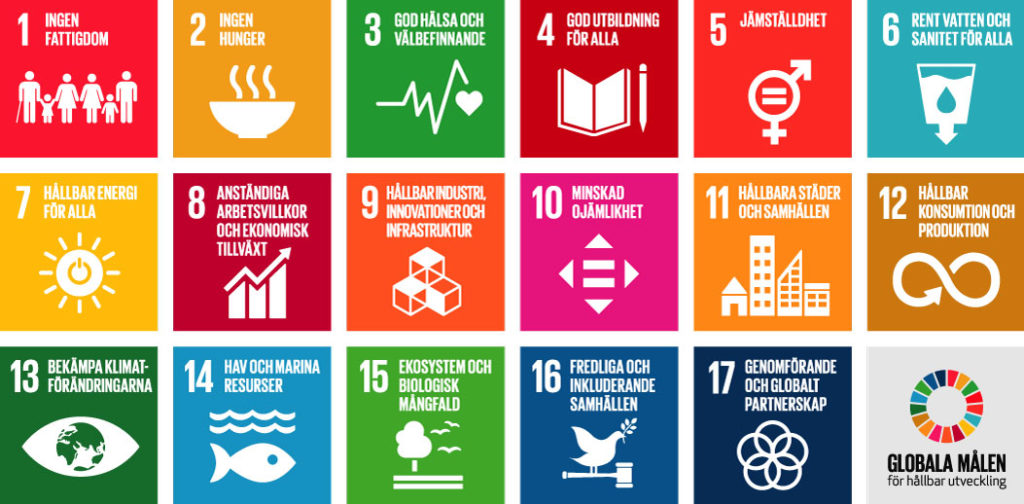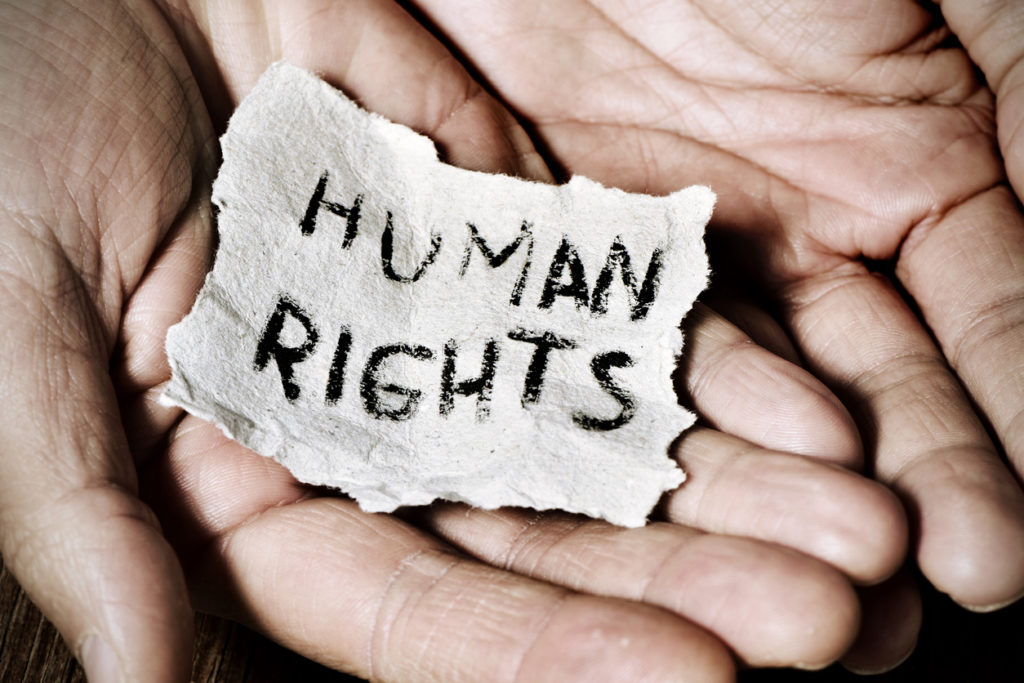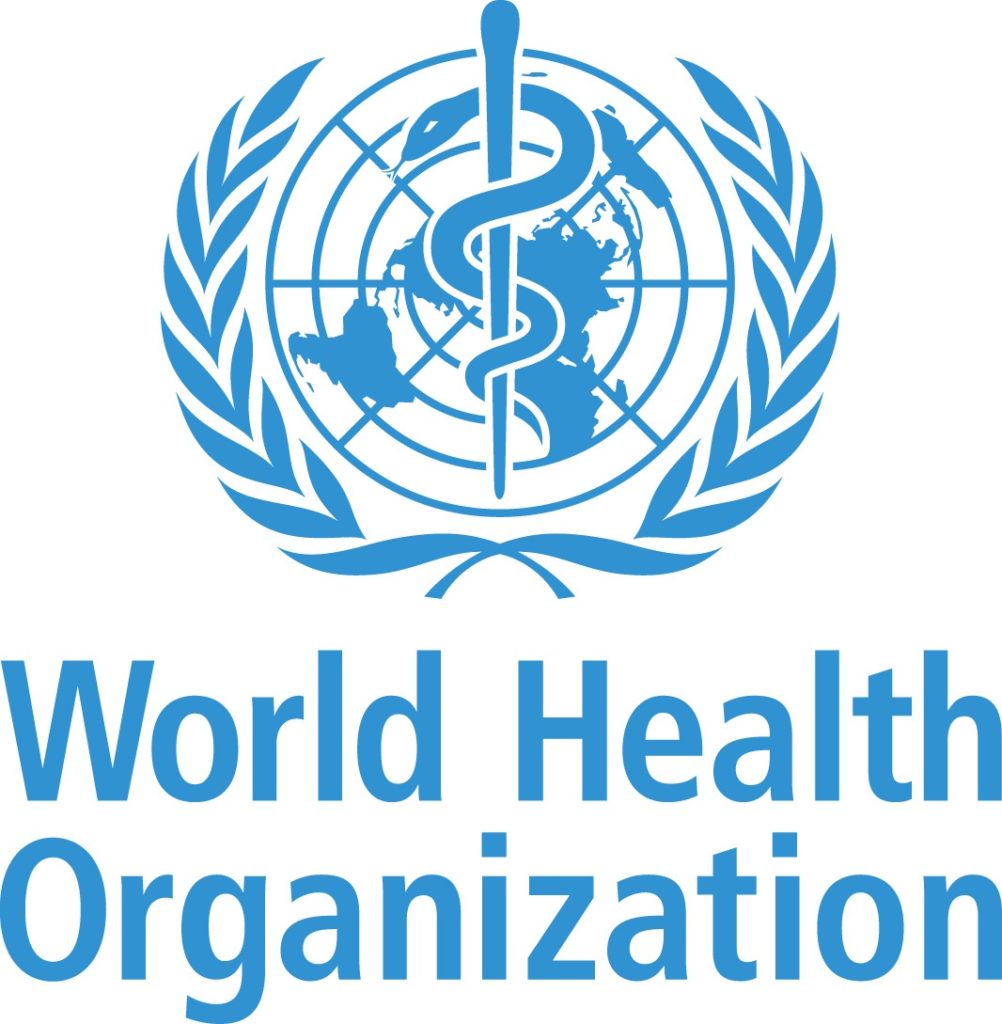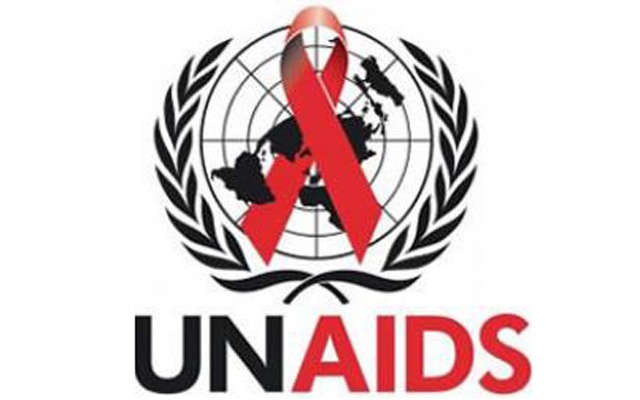
RFSL on sex for compensation
For RFSL as a rights organisation it's a matter of course to stand up for that everybody who has sex for compensation should have access to their human rights and a secure everyday life. Today, stigma causes problems, and RFSL wants to problematise this.

RFSL works according to the Global goals for sustainable development. The access to good health, under goal three, depends on economical and social factors.
RFSL, together with other human rights organisations, sees how criminalising legislation causes stigma and contributes to an increased exposedness for LGBTQ individuals. Because of the legislation, buyers prioritise their own safety, which makes it harder for the person having sex for compensation to prioritise their safety. Especially if they are economically exposed and have no other options.
When the person having sex for compensation is forced to higher risk behavior, women, youth, LGBTQ people, migrants, people who are racified and other groups are most affected and risk being subject to hate crimes.
Therefore, RFSL has always discussed sex for compensation and problematised the sex market legislation. This is thus not a new positioning.
RFSL feels that there’s a need for a feminist legislation that safeguards people who have sex for compensation and that ensures that those who don’t want to have sex for compensation have access to other alternatives.
In RFSL’s goals for societal change you can read more about how RFSL will work in this issue.
The difference – decriminalisation and legalisation:
Legalisation of sex for compensation means that it’s regulated by the state. Germany has this model, and RFSL does not promote this model.
Decriminalisation of sex for compensation and buying sex means that people who willingly are involved in sex for compensation aren’t criminalised. Decriminalisation does not mean a complete lack of regulation. It means shifting the focus from legislation that criminalises parts of, or all parts of, sex for compensation (including the buying of sex), and instead focuses on laws and policys that protect people who have sex for compensation from being taken advantage of.
Questions and answers
What does RFSL think about the Swedish sex market legislation, that illegalises the buying of sexual favors?
RFSL feels that the sex market legislation is problematic and needs to be investigated. The main reason is that a criminalising legislation stigmatises already vulnerable groups. This in turn leads to a hightened exposedness to violence, since you are forced to prioritise the buyers’ safety, worsened living conditions and an unchanged or worsened relation to authorities.
“Everybody should have access to a safe everyday life and their human rights.”

LGBTQ people and migrants are overrepresented among those who have sex for compensation in Sweden. LGBTQ organisations, actors who work with human rights and organisations that work to prevent HIV around the globe, promote decriminilastion.
From an international perspective RFSL has the same viewpoint as the UN’s world health organisation, WHO, and UNAIDS, that both advice against criminalising legislation when it comes to sex for compensation. Leading human rights organisations like Amnesty International and Human Rights Watch are for a decriminilasation from a human rights perspective.
RFSL means that the paragraph in the penal code that prohibits the buying of sexual favors, the sex market legislation, should be reformed so that adults who, under a common agreement, have sex for compensation are no longer criminalised.
“Human trafficking, for sexual or other purposes, is a serious crime.”
RFSL at the same time believes that people who have sex for compensation are at risk of being harmed because of economical, social, psychosocial or physical constraints. Because of that, RFSL gave its support when a governmental investigation proposed a graduation of the crime buying a sexual favor.
That means that RFSL stands behind that the buying of a sexual favor shouldn’t be allowed when the seller is in a vulnerable or exposed position, for example when there’s a relationship of dependence on the person buying the sexual favor, serious intoxication of alcohol or drugs or exposedness to trafficking.
Human trafficking, for sexual or other purposes, is a serious crime that RFSL emphatically rejects.
It’s natural for RFSL as an organisation to stand up for that everybody who has sex for compensation should have access to a safe everyday life and their human rights.
What other standpoints does RFSL have regarding sex for compensation?
- Sex for compensation can sometimes be based on common agreements, and in other cases be built on exploitation. Instead of a continued criminalisation of sex for compensation, RFSL wants to see a development of the social work in the field and active counteracting of the social exclusion of those who have sex for compensation.
- RFSL promotes support to organisations that represent people who have sex for compensation, and that the experience those organisations have is taken seriously.
- The support functions for people who have sex for compensation have to be LGBTQ competent and able to receive people regardless of sexual orientation and gender identity.
- RFSL means that the current description of the crime procuring negatively affects the health and safety of those who have sex for compensation. Therefore, RFSL promotes an evaluation of the procurement legislation, with the intent that it shouldn’t be used against people who have sex for compensation in a way that risks increasing stigmatisation, exposedness and alienation, for example by losing the contract of rented accommodation or that a partner, who is a co-habitant, can be charged with procurement.
“The Aliens Act is problematic since migrants can be deported based only on having had sex for compensation in Sweden.”
- RFSL believes that the Aliens Act is problematic in that a non-EEA citizen (originated outside the EU and other EEA countries) can be deported after having had sex for compensation in Sweden. This is based on the law that says that there’s a possibility of deportation if a person “won’t be able to support themselves in an honorable way”, which in practice means that the seller also is criminalised.
Why is RFSL involved in issues about sex for compensation?
It’s more common for LGBTQ people to have sex for compensation than the population in general.
The public health agency of Sweden’s survey 2019 showed that 7,5 percent of homo- and bisexuals and 10 percent of trans people had experience of having sex for compensation, compared to 1,5 percent of women and 1 percent of men in the population in general. Researcher Niina Voulajärvi (2018) states that 70-80 percent of the people who have experience of sex for compensation in Sweden, Denmark, Norway and Finland are migrants.
“It’s more common that LGBTQ people have sex for compensation.”
RFSL thus represents groups where the experience of having sex for compensation is common. RFSL wishes to counteract that the person having sex for compensation is affected by stigmatisation, discrimination and ill-health.

What effects does crimininalisation of sex for compensation have?
There are no studies that show that the situation for people who have sex for compensation is improved by prohibiting the buying of sexual favors. But a study made by researcher Jay Levy (2015) has shown that the Swedish sex market legislation has made fear of the police, social services and other authorities an obstacle for getting care and access to social efforts.
“The Swedish sex market act has made fear of the police, social services and other authorities an obstacle for getting care and access to social efforts.”
Internationally, doctors report that the the ban on buying sexual favors in France lead to a greater exposedness to violence, worsened living conditions and an unchanged or worsened relation with the police for people who have sex for compensation.
After the criminalisation of buying sexual favors in Ireland, the initiative UglyMugs, a safety app for people who have sex for compensation, reports a 90 percent increase in crimes towards people who have sex for compensation, and an increase in violent crimes of 92 percent.
There’s nothing that indicates that the occurrence of sex for compensation is decreasing as a result of criminalisation, which was the main purpose of the Swedish legislation.
According to the public health agency of Sweden’s survey 2019 9,4 percent of Swedish men had experience of buying sexual favors. This is the same number as the 10 percent of Swedish men who were reported to have had such experience when the sex market act was adopted 20 years ago.
What would a decriminalisation of sex for compensation mean for HIV prevention?

According to the global goals for sustainable development, epidemics of infections should be extinct in 2030. A person having sex for compensation is at a greater risk of contracting HIV and other STIs.
Criminalisation of sex for compensation leads to a worsening in conditions for people who have sex for compensation. You might be working under conditions that aren’t safe, it might be difficult to make demands about safer sex and you might have less access to healthcare.
The world health organisation, WHO, estimates that decriminalisation of sex for compensation decreases the occurrence of new HIV infections in the target group by as much as 46 percent. Preventative HIV medication in the form of PrEP is recommended for people who have sex for compensation globally, but no such recommendations have been made in Sweden.
What’s the alternative to today’s criminalising legislation?
RFSL has a positive view on the so called decriminalisation model that has been introduced in New Zealand.
A decriminalisation means the abolishment of punishing laws regarding voluntary sex for compensation, which gives the person having sex for compensation the power.
That makes it possible to work under labour laws, to work together for increased safety and to be able to join a union etc. Such a decriminalisation should be complemented by strengthened social efforts for those who have sex for compensation, and buyers, and a continued work in fighting human trafficking.
RFSL doesn’t approve of so called legalisation models, as these mean that people who have sex for compensation have to meet certain criteria in order to make sex for compensation legal. In countries such as Germany and the Netherlands, it is those who are the most vulnerable that can’t fulfill the criteria and who are thereby criminalised.
What do people who have sex for compensation think about the legislation?
According to the afore mentioned study by Nina Voulajärvi, people who have sex for compensation in Sweden don’t want to see a continued criminalisation of the buying of sexual favours.
Internationally, doctors report that the same is true for people who have sex for compensation in France. Today, there are organisations in Sweden, Fuckförbundet and Rose Alliance, who organise people who have sex for compensation, and they are avid protestors of a continued criminalisation.
RFSL stands by these organisations. Globally, the umbrella organisations for LGBTQ organisations, ILGA World, and the umbrella organisations for trans organisations Transgender Europe and GATE, are for a decriminalisation of sex for compensation. A not too insignificant number of the members of LGBTQ organisations have sex for compensation.
But isn’t it adult males that will benefit most from a decriminalisation of sex for compensation?
Regardless of what you think about sex for compensation, or what you think about people who buy sexual favors, it’s obvious that the Swedish legislation is harmful for people who have sex for compensation.
“It’s not about the right to buy sex, but about that the rights of those who offer sex for compensation need to be strengthened.”
It’s not about the right to buy sex, but about that the rights for those who offer sex for compensation need to be strengthened.
One problem with the Swedish legislation is that it puts so much focus on individuals involved in sex for compensation, when it is really the state that should be held accountable for factors that contribute to selling sexual favors, like social or financial alienation, which leads to people having sex for compensation feeling that they have no other choice.
The Swedish sex market legislation leads to the transactions being more concealed than they would otherwise have been. It’s in such environments that buyers get more power over the seller of a sexual favor.
When buyers, because of the law, have to prioritise their own safety, it makes it harder for the person having sex for compensation to prioritise theirs, especially if they are financially exposed and have few other means of supporting themselves other than having sex for compensation.
Instead of seeing people in their own home, where the buyer risks being caught by the police, the person who has sex for compensation is forced to sell in unknown places.
When the person having sex for compensation is forced into a higher risk behavior it is women, youth, LGBTQ people, migrants and people who are racified that are most affected and furthermore risk being subject to hate crimes.
But isn’t the sex market act a feminist legislation that shows that Sweden stands up for women’s rights?
The occurrence of sex for compensation can be a manifestation of inequality, but it isn’t a factor that in itself leads to inequality.
We need feminist legislation that safeguards women and LGBTQ people who have sex for compensation and that ensures that those who don’t want to have sex for compensation have access to other alternatives.
It’s for example not feminist that two women who have sex for compensation together, for their own safety, can be charged with procuring, or that a potentially unfit father in a custody battle gets custody of a child if the mother has had sex for compensation. It’s also not feminist that the boarder police works actively to deport people, most often women, because they have had sex for compensation or that people who have sex for compensation may lose their place to live.
People who have sex for compensation do so for a number of reasons. Some are socially and financially exposed and need strengthened access to social efforts, not efforts that make them more exposed and stigmatised.
Why does RFSL think that it’s extra problematic that the Swedish model is being exported as a part of the feminist foreign policy?
RFSL is a feminist and anti-racism organisation with operations around Sweden and partner organisations and collaborations all over the world. We are proud that the Swedish government actively takes a stand for, and works for, equality and better living conditions for LGBTQ people.
At the same time we are critical of that the Swedish sex market legislation is formulated as a solution that can be “exported” to other countries and contexts. Partly because we see that it marginalises exposed groups in Sweden, and partly because it cannot be applied in countries that lack the social safety nets we have here, even though everybody cannot take advantage of them.
“LGBTQ people and migrants, especially trans women, are in many parts of the world totally dependent on sex work for their survival.”
LGBTQ people and migrants, especially trans women, are in many parts of the world totally dependent on sex work for their survival. This is true both in the global South and the global North, even though the differences are considerable.
To introduce a criminalising legislation in a context without social safety nets, discrimination legislation or a strong civil society is dangerous as well as inappropriate.
Röda paraplyet – RFSL Stockholm’s health site for LGBTQ people who have sex for compensation
September 30 Fuckförbundet and the International Committee on the Rights for Sex Workers in Europe (ICRSE) in cooperation with RFSL organised the conference Sex work, human rights and health: assessing 20 years of Swedish model. The congress was the first of its kind in Sweden, where people who have sex for compensation themselves set the agenda.
In connection with the conference, Fuckförbundet presented its report Twenty years of failing sex workers.




